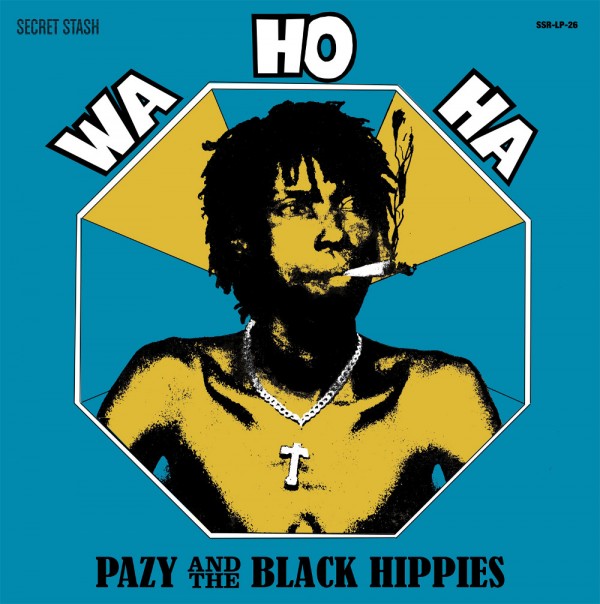Reviews September 27, 2012
Wa Ho Ha
It’s there in the jubilantly self-referential shout of “Hippies!” that punctuates the driving tropical groove and stretched horns of Wa Ho Ha. Or in the half-crazed yipping that rolls through the wah-wah phased soundscape of “Papa’s Black Dog.” It’s a sense of ramshackle funk, of a boogie-down band barely holding together as it rampages across the dance floor, that sets Wa Ho Ha apart from so many of the reissues that come across the door of the Afropop office.
Although the band is Nigerian (hailing from Benin City in the nation’s south), it stands apart from the larger Afrobeat crowd through its adherence to the sound of the reggae that was then streaming from Jamaica. While the '80s would see no small supply of Nigerian bands whose music reflected Bob Marley's continent-wide impact, Wa Ho Ha (which was released roughly a half-decade before this glut) is cut from a very different cloth. For one, the record lacks any hint of the synthesized slickness of so much African reggae. Instead, the band grooves with an almost psychedelic intensity, resulting in a sound that is danceable, but remains peculiarly (and pleasingly) skewed. Songs are a frequently a mess of rolling echo and studio effects, sounding as if a garage-rock band, with all the trebly distortion and hoarse-voiced half-sing that implies, was let loose to ply their art amid the ghosts and gadgets of Lee Scratch Perry’s Black Ark studio.
It’s strange to say, but in many ways the best thing about Wa Ho Wa may be the ways in which its music fails to live up to its Jamaican inspiration. While the band readily adopts the languid horns and guitar upstrokes that would seem to mark the influence of reggae, the genre’s underlying feel eludes it. Unable to shrug the rhythmic and tonal inheritance of their musical background, the group never quite manages to get it right. As a result, the album is left as strange hybrid. The beat--which in Jamaican reggae is a rock-solid touchstone, delayed, dragged, rushed, and messed with, but always maintained--floats in a way that utterly refuses to settle. Augmented by a hyperactive rhythm section, the songs overflow reggae’s laid-back swagger, pulling in a host of funk (and Afrobeat) influences to arrive at a space of caffeinated exuberance, a bedrock rush that courses through the entirety of the album. Any number of wonderful details accumulate around this core-- Pazy’s wildcat vocals, the rockabilly-abandon-meets-Fela logic of the lead guitar, the wonderfully flat harmonies and horns--but the album’s central pleasure remains this energy. It’s what sets it apart, transforming what might be heard merely as a fascinating curio into a full-on album, the kind that you listen to over and over. Not because it’s cool, or rare, but because you genuinely want to hear it. It’s just that contagious. Hippies!








